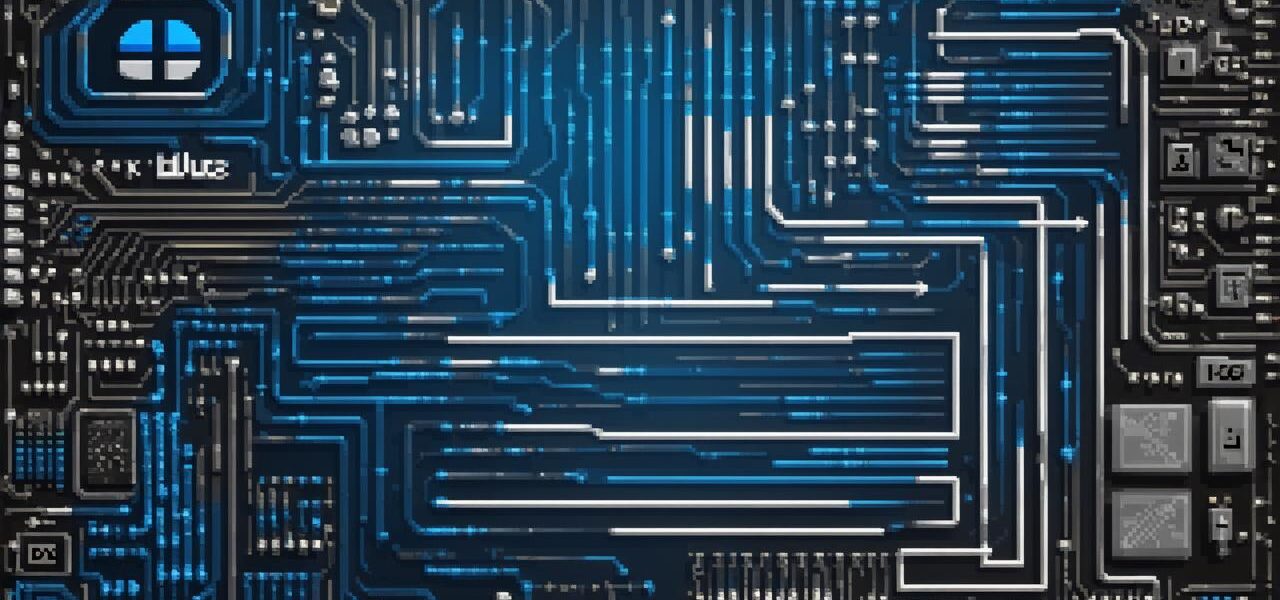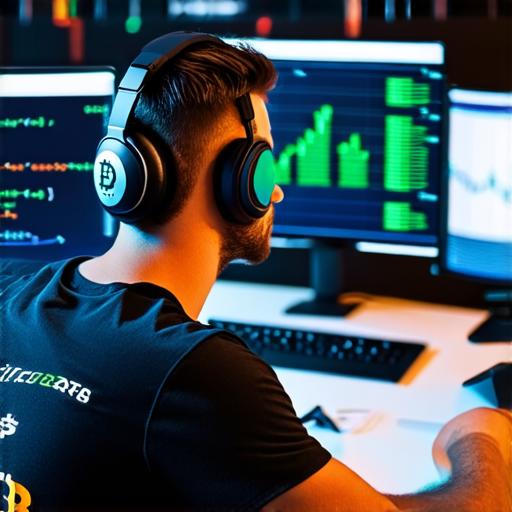
Essential Prerequisites for Blockchain Development
Introduction

Blockchain technology has been gaining significant traction in recent years as more and more industries recognize its potential to revolutionize the way data is stored, shared, and transferred. As a result, there has been an increase in demand for blockchain developers who possess the necessary skills and knowledge to build and maintain these complex systems.
Technical Requirements
1. Proficiency in Programming Languages
Before diving into the world of blockchain development, it’s important to have a solid foundation in programming languages such as Python, Java, C++, and JavaScript. These languages are commonly used for building smart contracts and other applications on top of blockchain platforms like Ethereum and Hyperledger Fabric. It’s also essential to understand the syntax and semantics of these languages, as well as their various libraries and frameworks that are specifically designed for blockchain development.
2. Understanding of Data Structures and Algorithms
Blockchain development requires a deep understanding of data structures and algorithms. These concepts are critical for building efficient smart contracts and ensuring the integrity and security of the data stored on the blockchain. Some common data structures used in blockchain development include arrays, linked lists, stacks, and queues. Algorithms such as hashing and encryption are also essential for securing data and ensuring that transactions on the blockchain are tamper-proof.
3. Familiarity with Blockchain Platforms and Tools
To become a successful blockchain developer, it’s important to have a good understanding of the various blockchain platforms and tools available in the market. Some popular platforms include Ethereum, Hyperledger Fabric, Corda, and EOS. These platforms offer different features and capabilities that are suited to different types of applications. Developers should also be familiar with development tools such as Truffle, Remix, and Gan, which can be used for testing and deploying smart contracts on the blockchain.
4. Knowledge of Cryptography and Security Protocols
Blockchain technology is known for its high levels of security, but this doesn’t mean that it’s immune to threats. Blockchain developers must have a good understanding of cryptography and security protocols to ensure that the data stored on the blockchain is secure from unauthorized access or tampering. This includes knowledge of public-key cryptography, digital signatures, and consensus mechanisms such as proof-of-work and proof-of-stake.
Non-Technical Requirements
1. Good Communication Skills
Blockchain development requires effective communication skills, both verbal and written. Developers must be able to clearly explain complex concepts to non-technical stakeholders, as well as collaborate effectively with other members of the development team. This includes the ability to listen actively, ask questions, and provide constructive feedback.
2. Problem-Solving Skills
Blockchain development can be challenging, and developers must possess strong problem-solving skills to overcome obstacles and find creative solutions to complex problems. This involves identifying root causes of issues, analyzing data, and developing strategies to address them.
3. Analytical Skills
Analytical skills are essential for blockchain development, as developers must be able to analyze data and make informed decisions based on their findings. This includes the ability to identify trends, patterns, and anomalies in data, as well as develop predictive models to forecast future outcomes.
4. Attention to Detail
Blockchain development requires a high level of attention to detail, as even small errors can have significant consequences on the integrity of the blockchain. Developers must be meticulous in their work, ensuring that all code is thoroughly tested and debugged before deployment.
Case Studies and Personal Experiences
1. The DAO Hack
In 2016, the Ethereum-based decentralized autonomous organization (DAO) was hacked, resulting in the loss of over $50 million in ether. This event highlighted the importance of security in blockchain development, as well as the need for developers to stay up-to-date with the latest security protocols and best practices.
2. Blockchain Development at IBM
IBM is one of the leading companies in the blockchain space, with a focus on enterprise-level solutions. IBM’s blockchain development team includes a diverse range of professionals with expertise in areas such as software engineering, cybersecurity, and business strategy. This demonstrates the importance of interdisciplinary skills in blockchain development.
3. Personal Experience
As a blockchain developer myself, I have found that having a strong foundation in programming languages and a deep understanding of data structures and algorithms are essential for building efficient and secure smart contracts. Additionally, effective communication skills and attention to detail are critical for ensuring successful collaboration with other members of the development team.
FAQs
1. What is the most important skill for blockchain development?
The most important skill for blockchain development is problem-solving, as developers must be able to identify and solve complex problems that arise in the course of building and maintaining blockchain systems.
2. How long does it take to become a blockchain developer?
Becoming a blockchain developer requires a combination of technical skills, experience, and continuous learning. It can take several months or even years to acquire the necessary knowledge and expertise to build and maintain complex blockchain systems.
3. Is there a certification program for blockchain development?
There are several certification programs available for blockchain development, including the Certified Ethereum Developer (CED) program offered by ConsenSys and the Certified Blockchain Developer (CBD) program offered by the Hong Kong Institute of Certified Public Accountants. However, these certifications are not a guarantee of employment or expertise in the field.
Conclusion
Becoming a blockchain developer requires a combination of technical skills, experience, and continuous learning. To succeed in this field, developers must have a strong foundation in programming languages, data structures, and algorithms, as well as a deep understanding of cryptography and security protocols. Additionally, effective communication skills, problem-solving abilities, analytical skills, and attention to detail are essential for building efficient and secure blockchain systems. As the world continues to adopt blockchain technology, the demand for skilled developers is only expected to grow, making it a rewarding and exciting career path for those with the necessary expertise.



